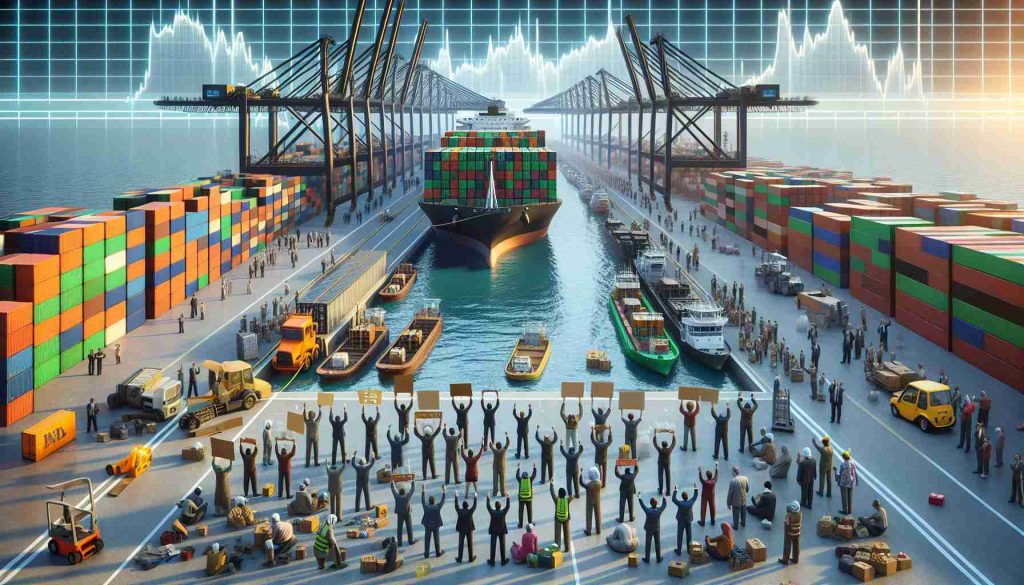Dockworkers’ Strike Disrupts Supply Chains, Leading to Economic Turmoil
3 min read
A looming crisis in the shipping industry has sent shockwaves through the global economy, as thousands of dockworkers prepare to halt operations in a bid for fair labor conditions. The potential strike threatens to disrupt supply chains and result in severe economic repercussions worldwide. Analysts fear widespread shortages of goods and skyrocketing prices, impacting businesses and consumers alike.
The industrial action, spearheaded by labor unions representing over 45,000 dockworkers, is rooted in demands for improved wages, working conditions, and benefits. Negotiations between union leaders and shipping companies have reached a stalemate, with neither side showing signs of compromise. As tensions escalate, the specter of a full-scale strike looms large, leaving industries reliant on maritime trade bracing for the fallout.
Should the strike materialize, the ripple effects are expected to be felt across various sectors, including retail, manufacturing, and agriculture. In addition to disrupting the flow of essential goods, the shutdown of ports and terminals could lead to widespread job losses and diminished economic growth. Governments and businesses are scrambling to devise contingency plans to mitigate the potential chaos and minimize the disruption to essential services.
Amidst the uncertainty and apprehension surrounding the looming strike, stakeholders are urged to engage in proactive dialogue and seek a timely resolution to avert a crisis of unprecedented proportions. The outcome of these crucial negotiations will not only shape the future of labor relations in the shipping industry but also have far-reaching implications for the global economy as a whole.
Unveiling the Hidden Impacts of a Dockworkers’ Strike on the Global Economy
As the countdown to a possible dockworkers’ strike continues, the global economy braces itself for the looming turmoil that could ensue. While the previous article shed light on the broad strokes of the impending crisis, key questions and nuances deserve further exploration to grasp the full extent of the challenges at hand.
What are the key questions surrounding the dockworkers’ strike and its consequences?
One crucial question revolves around the potential timeline of the strike and how long it might persist. Understanding the duration of the disruption is essential for businesses and governments to gauge the extent of the impact on supply chains and the broader economy.
Key Challenges and Controversies:
One of the primary challenges lies in the delicate balance of power between labor unions and shipping companies. The standoff between these two entities not only affects immediate negotiations but also sets a precedent for future labor disputes in the industry.
Controversies may arise regarding the strategies employed by both parties during negotiations. Questions about the transparency of discussions, the validity of demands, and the tactics used to press for favorable outcomes could become contentious points of debate.
Advantages and Disadvantages of the Situation:
The advantage of the impending strike is the potential for raising awareness about labor rights and bringing attention to the working conditions of dockworkers. It may catalyze systemic changes that benefit workers in the long run.
On the flip side, the disadvantages are far-reaching, with supply chain disruptions leading to price hikes, shortages of essential goods, and economic instability. Businesses face the risk of financial losses, while consumers may bear the burden of reduced access to products.
As the clock ticks closer to the critical juncture of the strike, stakeholders must grapple with these complexities to navigate the stormy seas ahead.
Suggested related links: International Labour Organization, World Bank






